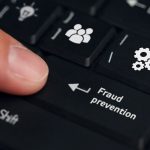Tomislav Šunjka states that: “In fraud and asset tracing matters it is very important, after studying the evidence and careful consideration of all the facts, to decide on proper and adequate legal strategy and procedure.
“Legal knowledge that is necessary for the effective conduct of a case is much more complex. It is necessary to be a good business lawyer, first of all, with vast knowledge on financial and banking law, in order to understand the transactions, transfers of money funds, to know the manner of functioning of various assets registers, such as: cadastral, yacht, company registers, as well as offshore accounts and business structures and systems.
“As an upgrade after that come investigation and litigation / prosecution skills, where the prior knowledge is used as tools. Only then a real added legal value can be awarded to fraud and asset recovery matters and cases.
“All above mentioned are core value of Law office of Tomislav Šunjka.”
In an exclusive interview, he expands more on white collar crime in Serbia.
What do most fraud and asset tracing cases involve? What are the most common occurrences?
Each asset tracing case can be observed through subjective, human dimension and objective legal occurrence dimension.
Main features of the subjective dimension are always kleptocracy and greediness. Generally fraudsters are arrogant; they think that they are too clever and therefore legally and socially untouchable. They think that firstly their activities will not be understood or discovered, and if discovered, that the asset will never be found. If, however, asset is found, the asset recovery cases will move very slowly, since the court systems are inefficient and corrupt in general. Finally, the fraudster believes that if it turns out to be a court epilogue, the results of it will be still minor in terms of recovered assets and the biggest part of the asset will still be controlled by him.
Legally speaking each asset recovery case can also be viewed through legal strategy and choosing appropriate legal procedures. The prevailing question is: should the asset recovery be conducted through civil or criminal procedure, since in a number of jurisdictions, both civil and criminal procedure cannot be lead at the same time. Where civil and criminal procedures can be lead in parallel, there is often a communication problem with the state prosecutor and obtaining evidence from the criminal file. The most common goal in legal terms is to obtain freezing order / preliminary injunction before initiating the lawsuit (civil or criminal) to secure the assets and secure future enforceability of court or arbitration decision.
What is currently the state of fraud / white collar crime in Serbia and how is it being confronted from a legal perspective?
On June 1st 2017 amendments to the Criminal Code of Serbia came into force, which regulate the field of fraud / white collar crime significantly better than the previous law. The amendments retained fraud as a criminal act in the part of the law governing crimes against property, which could be described as fraud in general. However, the part of the law governing business and white-collar crime prescribed two new criminal acts of fraud - business fraud and insurance fraud. In my opinion, although the amendments of the Code are good, it can still be significantly improved with a more detailed and precise determination of criminal acts in the field of business and white-collar crime and prescribing additional fraud related criminal acts, such as accounting fraud, fraud on the stock market and related to securities, fraud in the sale of excise goods, commodities trading fraud etc.
What have been the latest legislative developments in Serbian securities and financial law?
Recent legislative developments in the field of securities and financial law is Law on banking (2015). It is a parent law that regulates the financial market and system of functioning of financial markets, and it introduced additional stability in it. This was achieved through high mandatory bank deposits and reserves, which are to be deposited to Central Bank by all business banks, for loans ranked as risk, high risk, hard or non-performing loans (NPLs). In general, for any business or financial activity on the financial market, special permits and licences issued by the Central bank are obligatory, which, as a condition for issuance of such a permit, requires monetary deposits and reserves. Financial business activity without such a permit is prescribed as a criminal act.
In my opinion, it is important to note that with recent amendments to the Law on capital markets from 2016, stricter rules apply to securities trading on and outside of organised market, as well as to the overall stock market operations. Important role of the Commission for Securities was also introduced. The Commission has special supervision and investigative authorities, including the authority to file criminal charges for economic offenses and misdemeanours. The law itself prescribes two criminal acts: stock price manipulation upon trade through forbidding market manipulation and inside trading. Our office has direct experience in white collar crime cases in these criminal acts, both as defence counsels for people and companies who had some misunderstandings with authorities and on the side of victims of these criminal activities.
What is next on the Serbian agenda for fraud and asset tracing law? What would you want to see change?
I would like to see a lot of change. Firstly, I would like to see a separate Asset Recovery Law, which does not exist at the moment. It is very important to define approach and solutions in commercial and business crime, white collar crime and civil asset recovery.
Side on that, we desperately need Anti - corruption law with prosecution authority given to Anti-corruption commission or special anticorruption prosecutors and special criminal and civil code/law as an effective instrument to recover stolen assets from political criminals.
Last but not least, juridical culture must be changed, including formal basic/changes in part of criminal procedure and civil procedure legislative, to allow prosecutors and judges to engage private professionals, lawyers and attorneys to represent them in asset recovery cases, international legal assistance matters and international enforcement of court verdict and decisions.
My name is Tomislav Šunjka and I am founder and principal of the independent Law Office of Tomislav Šunjka in Serbia. My background is business and transactional law. Because of this background, I understand very well the nature of transactions, bank transfers and financial arrangements and use that knowledge as a tool in my practice of asset tracing and asset recovery. I practice in Serbia and internationally and am a member of the Vojvodina and Serbia Bars, the International Bar Association and the London-based ICC Commercial Crimes Services Fraudnet.
The story of the Law office of Tomislav Šunjka success is a story with a moral: integrity is an investment that offers substantial professional, private and financial rewards. We are qualified to prevent problems. We are qualified to recognise them in their early stage, to make close study of a client’s legal requirements and then – to solve the problem.
Tomislav Šunjka
tomislav.sunjka@sunjkalawoffice.com
Law Office of
TOMISLAV ŠUNJKA
Sremska Street No.4/I
Serbia, Vojvodina, 21000 Novi Sad













